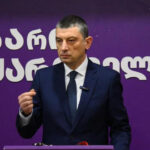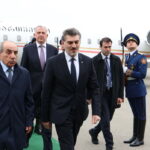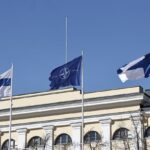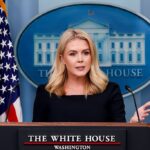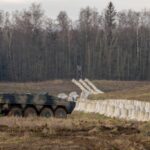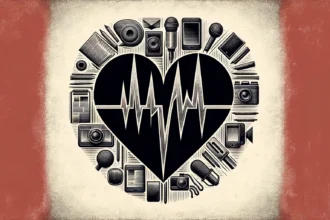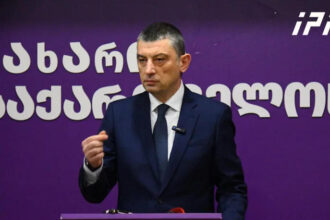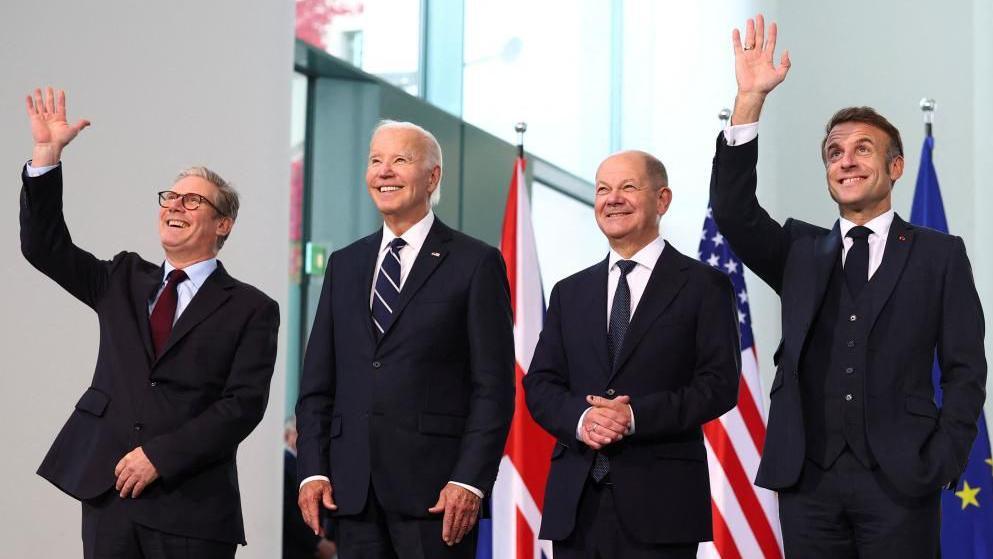* Published on 19 October 2024
The visit of US President Joe Biden to Germany on Friday, was very brief.
The US president spent every minute he had in Berlin trying to show that he has still big ambitions for the world stage in these last few weeks before he leaves his office in January. Particularly in the Middle East, and Ukraine.
Biden’s foreign policies has always been centered on European defence, a stark contrast with that of his predecessor Donald Trump, who is now a presidential candidate for 2024.
In recognition of Biden’s efforts, German President Frank-Walter Steinmeier presented him with the highest honor of his country, the special class Grand Cross.
Since Russia’s invasion in full force, the conflict in Ukraine is the worst war that this continent has seen since World War Two.
As it did 80 years earlier, Europe looks to the US as a leader and for military support.
But Biden said that there was still much more to be done. “We must continue until Ukraine achieves a just and lasting peace… We must maintain our support.”
Much will depend on the outcome of the US elections in November.
Europe relies on US military assistance to help Ukraine. Berlin is the second-largest donor after Washington. However, the amount pales in comparison to its allies across the Atlantic.
Biden’s departure from the White House is expected to bring an end to those days of American generosity.
Even if Democratic nominee Kamala Harris is elected the next US President, Congress will likely pivot to other foreign policies priorities, such China and Taiwan.
Trump’s 2016-2020 administration saw a turbulent relationship with Nato, the transatlantic military alliance that has existed since WW2.
He is known to have admired the “strongman” Russian president Vladimir Putin, but he hasn’t yet publicly stated if he hopes Kyiv will emerge victorious in this conflict.
There is a lot of talk in Nato circles that Europe has been “Trump-proofed” before the upcoming US election. However, there are few signs that this has actually happened or that Europe could “go it alone” successfully if necessary.
After Russia’s full scale invasion in 2022 the German Chancellor Olaf Scholz promised a “Zeitenwende”, an historical turning point where his country would leap over the shadow of Nazi past, and invest massively into its military in order to fully contribute to the shared defence of its allies.
This week, German intelligence chiefs warned that Russia’s continued investments in its military could put it in a position where it would be able to attack Nato at the end of this decade.
But Germany’s planned revamp of its military has been bogged down by bureaucracy. The government hasn’t even agreed on a future budget for defence.
Diplomats say Biden is worried about European resolve as there are signs of “Ukraine fatigue”, as allies in Europe struggle with their own domestic challenges.
Scholz is facing considerable pressure from the far right and the far left, who are both sympathetic to the Russian narrative. This comes ahead of the general election next year.
Scholz and Biden joined the UK and France, two major donors to Ukraine, in Berlin on Friday.
The “Quad”, or four of the biggest Nato countries, also discussed Iran and Middle East. In a joint press release, they reiterated their resolve to continue supporting Kyiv.
The UK Prime Minister Sir Keir starmer said that Russia was weakening and the war was consuming 40% of Moscow’s budget.
He said that he and other leaders had discussed with “what further capability, equipment and resources” they could provide Ukraine. He did not go into details.
Volodymyr Zelensky, the Ukrainian president, has requested specifics in his “victory plans”. Specifics such as an official invitation to Nato and the right to use the long-range rockets supplied by France and the UK. A request that has been denied to date.
Critics of Joe Biden, and his NATO allies, accuse them of repeatedly dragging their feet out of fear of an escalation in relations with Russia.
Kyiv and Moscow will have closely watched Biden’s “farewell visit” to Berlin on Friday.
They will have heard repeated assurances of unwavering support from four Nato countries for Ukraine, but they will also have seen a US President on his way out, a German Chancellor who is expected to lose her country’s general election, and a French President who is politically hampered at home.
Ukraine needs extra support from its biggest supporters. The country is at a vulnerable time as it finds itself on the back foot against Russia in its front line. The rest of Europe shares this concern.
Read More @ www.bbc.com


